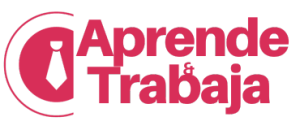Returning After Career Break: How to Restart with Confidence
Learn how to rebuild confidence, update skills, and relaunch your professional journey successfully.
Breaks end. Careers restart. Confidence returns.
Taking a career break is more common than ever. People step away from work for family responsibilities, personal health, further education, or simply to recharge.
While these pauses are valuable, returning after a career break often brings mixed emotions—excitement for new opportunities, but also doubt about skills, experience, and where to begin again.
Reentering the workforce does not have to feel overwhelming. With the right mindset, preparation, and strategy, you can transform a break into a powerful chapter of growth.
Employers today value adaptability, resilience, and fresh perspectives—qualities many professionals develop during time away. The key is learning how to present this experience effectively and confidently.

A New Perspective on Career Breaks
For years, career gaps were seen negatively. Now, attitudes are changing. Many companies recognize that stepping away from work can bring maturity, problem-solving skills, and emotional intelligence.
When returning after a career break, the goal is not to hide the gap but to show what you gained from it. Caring for family may have sharpened your multitasking skills.
Studying or freelancing during a pause may have expanded your knowledge. Even travel or volunteering can demonstrate adaptability and cultural awareness.
Rebuilding Confidence
Confidence is one of the biggest challenges after time away. It is normal to feel behind compared to colleagues who never paused their careers. Yet, this mindset can be changed.
Start by taking stock of what you already have. Write down your skills, experiences, and achievements before and during your break. Often, you will realize you are more capable than you thought.
Practice explaining your career break in a simple, professional way. Employers do not need every detail—they need to hear that you used your time productively and are ready to reenter the workforce.
Updating Skills and Knowledge
The job market evolves quickly, and staying updated is essential. After a career break, dedicating time to refresh your skills helps bridge any gaps.
Enroll in short courses, webinars, or certifications related to your field. Many platforms offer flexible online learning that fits any schedule. Networking events, workshops, and professional groups are also excellent ways to reconnect with your industry.
Technology changes fast, so focus on digital skills too. Familiarity with collaboration tools, data platforms, or project management software can give you an advantage when applying for roles.
Building a Strong Job Search Strategy
Rushing into applications without a plan often leads to frustration. A clear strategy makes returning after a career break smoother.
Update your résumé and LinkedIn profile, highlighting achievements instead of focusing only on dates. Use keywords from job descriptions and tailor each application.
Networking is especially powerful. Reach out to former colleagues, mentors, or industry contacts. Many job opportunities come through connections rather than open postings.
Consider returnship programs—special initiatives designed to help professionals restart their careers. These provide structured training, mentorship, and often lead to permanent roles.
Shaping Your Personal Brand
Your personal brand communicates who you are and what you bring to the workplace. Returning after a career break is the perfect time to refresh it.
Think about your strengths and how they align with today’s market. Do you bring leadership, creativity, or technical expertise? Highlight these in interviews, online profiles, and networking conversations.
A confident narrative about your career break is part of your brand. Frame it positively: emphasize resilience, adaptability, and readiness to contribute immediately.
Balancing Work and Personal Life
One benefit of stepping away is clarity about priorities. When returning after a career break, many professionals want balance, not just employment.
Flexible work options, remote opportunities, or part-time roles can help ease the transition. Negotiating boundaries early ensures your reentry feels sustainable.
Employers are increasingly open to flexibility, especially for professionals who demonstrate value and commitment. Be clear about your needs while also showing adaptability.
Final Thoughts
Career breaks are not endings—they are pauses that can bring clarity and strength. Returning after a career break requires confidence, preparation, and persistence, but it is absolutely achievable.
Employers value dedication, and the experience gained during time away often becomes a unique advantage. With the right approach, you can relaunch your career with fresh energy and direction.





